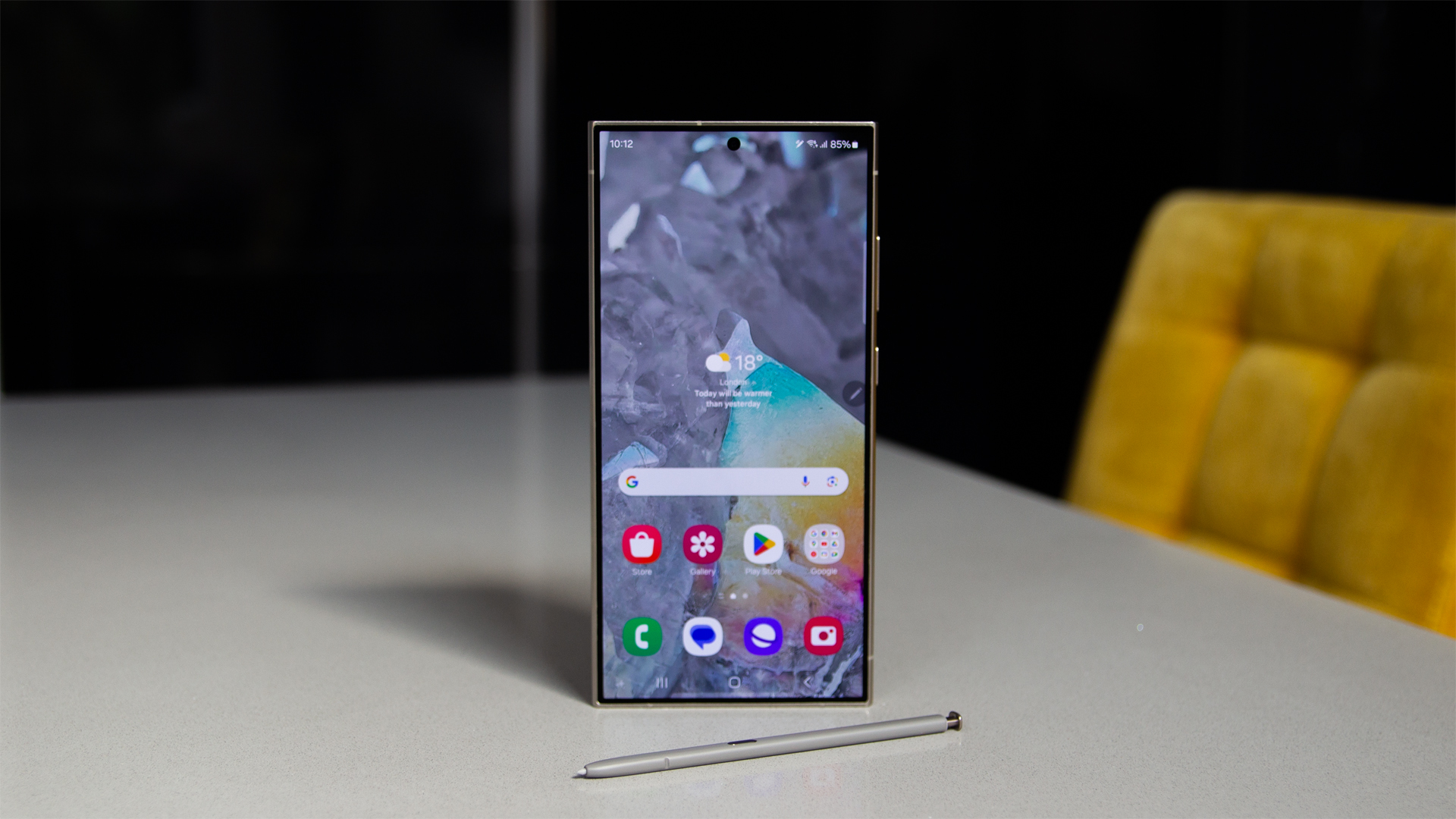

Quick Summary
Details about Samsung's forthcoming Galaxy S25 Ultra have been leaking, revealing details about the battery and charging speed.
Perhaps shockingly though, it's not expected that Samsung will make any changes over previous devices.
The Samsung Galaxy S25 Ultra isn't expected to launch until January 2025, but we're already hearing details about what will surely be of the best phones of the next generation.
However, the latest leak about the battery and charging speeds could shock you.
Samsung is the biggest player in Android phones. According to Canalys data, in the first quarter of the year, Samsung took 20% of the global smartphone market, a figure that will surprise no one. Yet, when it comes to charging speeds, Samsung isn't a market leader by any stretch.
In our review of the Galaxy S24 Ultra, Mike Lowe highlighted that the "charging remains slower than flagship competition".
This sort of criticism has been common of Samsung. While brands like Motorola or OnePlus have accelerated away with fast charging speeds, Samsung hasn't kept pace.
The shocking news is that nothing is changing.
According to Digital Chat Station, a reliable leaker who plies their trade on Weibo (via 91mobiles), the Samsung Galaxy S25 Ultra is expected to launch with a 5,000mAh battery and charging speeds of 45W, so there's really change from the previous model.
Sign up to the T3 newsletter for smarter living straight to your inbox
Get all the latest news, reviews, deals and buying guides on gorgeous tech, home and active products from the T3 experts
Why does Samsung use slow charging speeds?
Samsung has had extensive experience with smartphones and those with even a short memory will remember "GalaxyNote7gate". The Galaxy Note 7 was recalled because of a battery fault, bringing with it a risk of catching alight. While that's the biggest thing in Samsung's battery history, that's probably not the reason for slower charging.
Slower charging is better for battery health. There's less heat generated when charging slowly which is better for longevity of the battery. The advice is always to manage the charging of the battery and not just use the fastest charging all the time to top up your device.
This fits with Samsung having a lot of devices in circulation, as well as an expectation that your Samsung phone is going to last for a long time.
The same applies for other big brands. The iPhone 15 Pro Max doesn't offer fast charging, instead topping out around 25W, while the Google Pixel 8 Pro (not a big player, but designed to last a long time) offers 30W. Samsung's concern is more about longevity of the device, rather than reducing the charging time.
The other side of the argument is why you need to charge fast. I'm a big fan of fast charging, but only because it can save your bacon when you're rushing out of the house and have forgotten to charge your phone.
Being able to blast your phone at 125W while having a shower, knowing you'll come back to a device that's almost at 100%, is reassuring – but it's not designed for everyday use.
Samsung will continue to attract criticism for not keeping up with faster charging brands and it looks like that's going to be true of the Galaxy S25 Ultra too. On the flip side, the company is likely to lead with innovation elsewhere – in the camera, in the display, if not in the interface.
Chris has been writing about consumer tech for over 15 years. Formerly the Editor-in-Chief of Pocket-lint, he's covered just about every product launched, witnessed the birth of Android, the evolution of 5G, and the drive towards electric cars. You name it and Chris has written about it, driven it or reviewed it. Now working as a freelance technology expert, Chris' experience sees him covering all aspects of smartphones, smart homes and anything else connected. Chris has been published in titles as diverse as Computer Active and Autocar, and regularly appears on BBC News, BBC Radio, Sky, Monocle and Times Radio. He was once even on The Apprentice... but we don't talk about that.
-
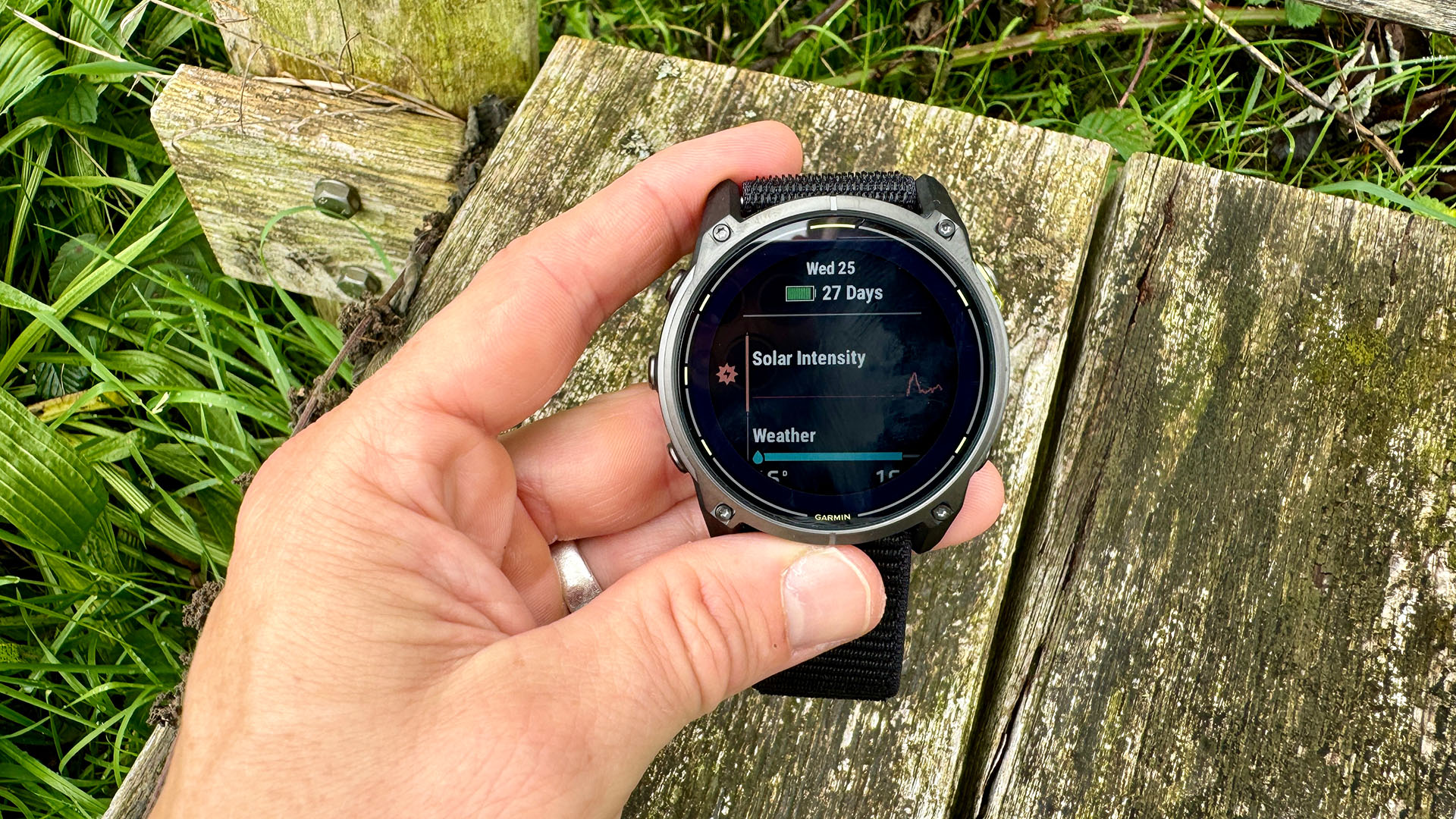 Garmin’s on a mission to update your wrist into oblivion as 100+ tweaks land on Fenix and Enduro watches
Garmin’s on a mission to update your wrist into oblivion as 100+ tweaks land on Fenix and Enduro watchesThe latest beta update looks comprehensive
By Matt Kollat Published
-
 5 reasons you should be excited about the brand new Samsung Bespoke AI Jet Ultra
5 reasons you should be excited about the brand new Samsung Bespoke AI Jet UltraNot sure if it’s obvious... but I can't wait to try it
By Lizzie Wilmot Published
-
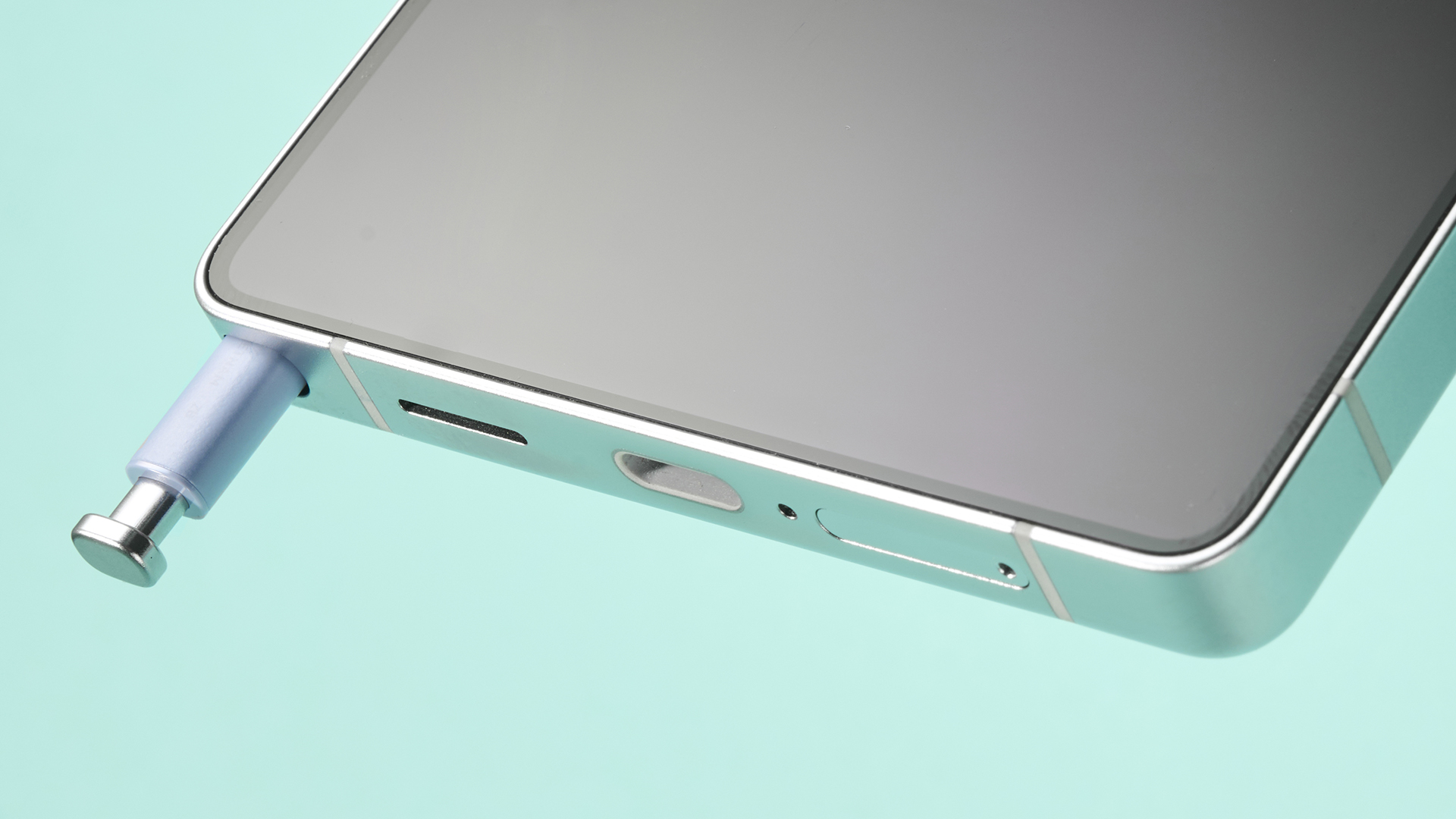 Samsung Galaxy devices could lose a unique feature after all
Samsung Galaxy devices could lose a unique feature after allThat's despite recent claims to the contrary
By Sam Cross Published
-
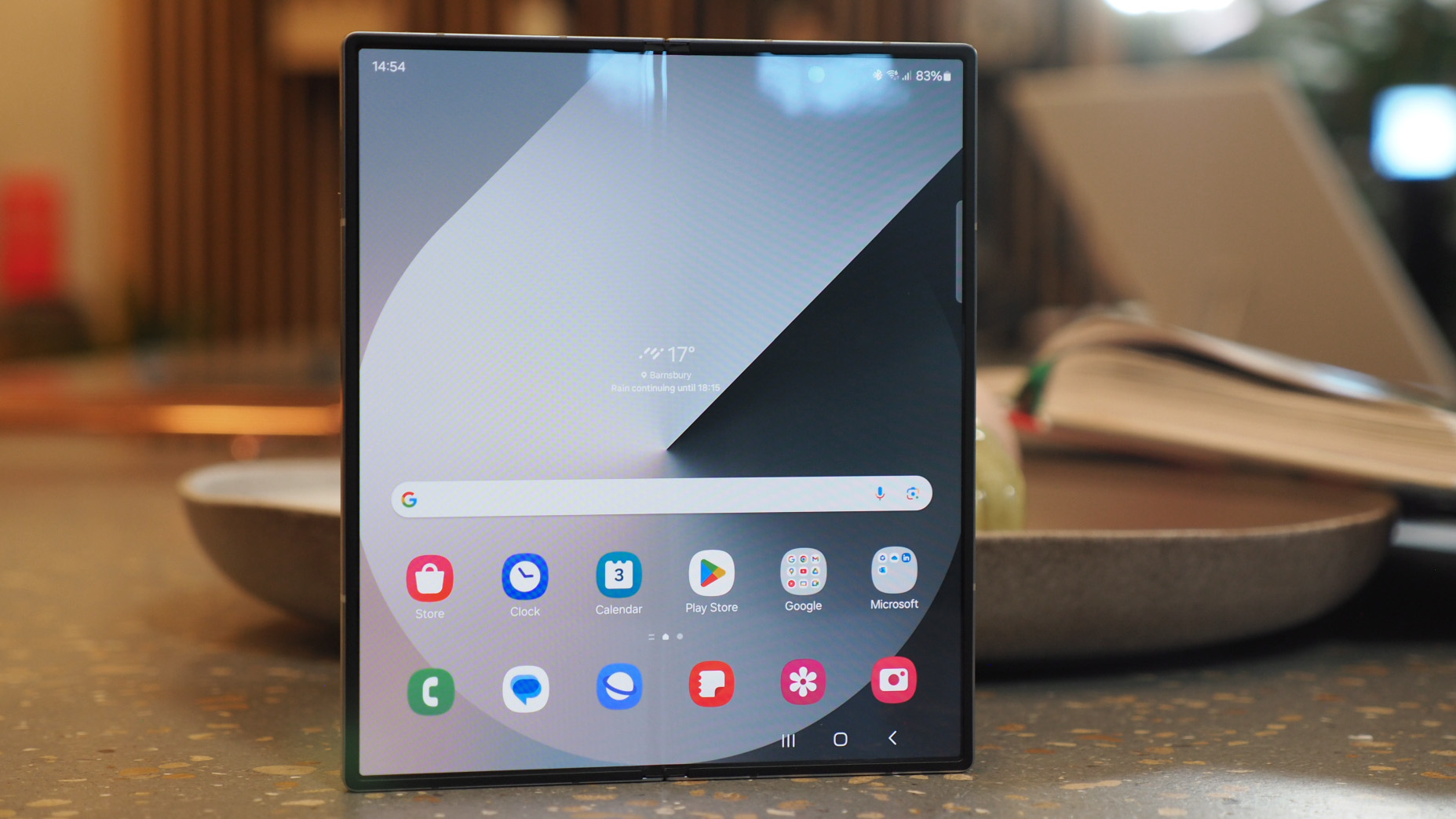 Samsung Galaxy handsets could get a massive free software upgrade as soon as this summer
Samsung Galaxy handsets could get a massive free software upgrade as soon as this summerThat's way sooner than expected
By Sam Cross Published
-
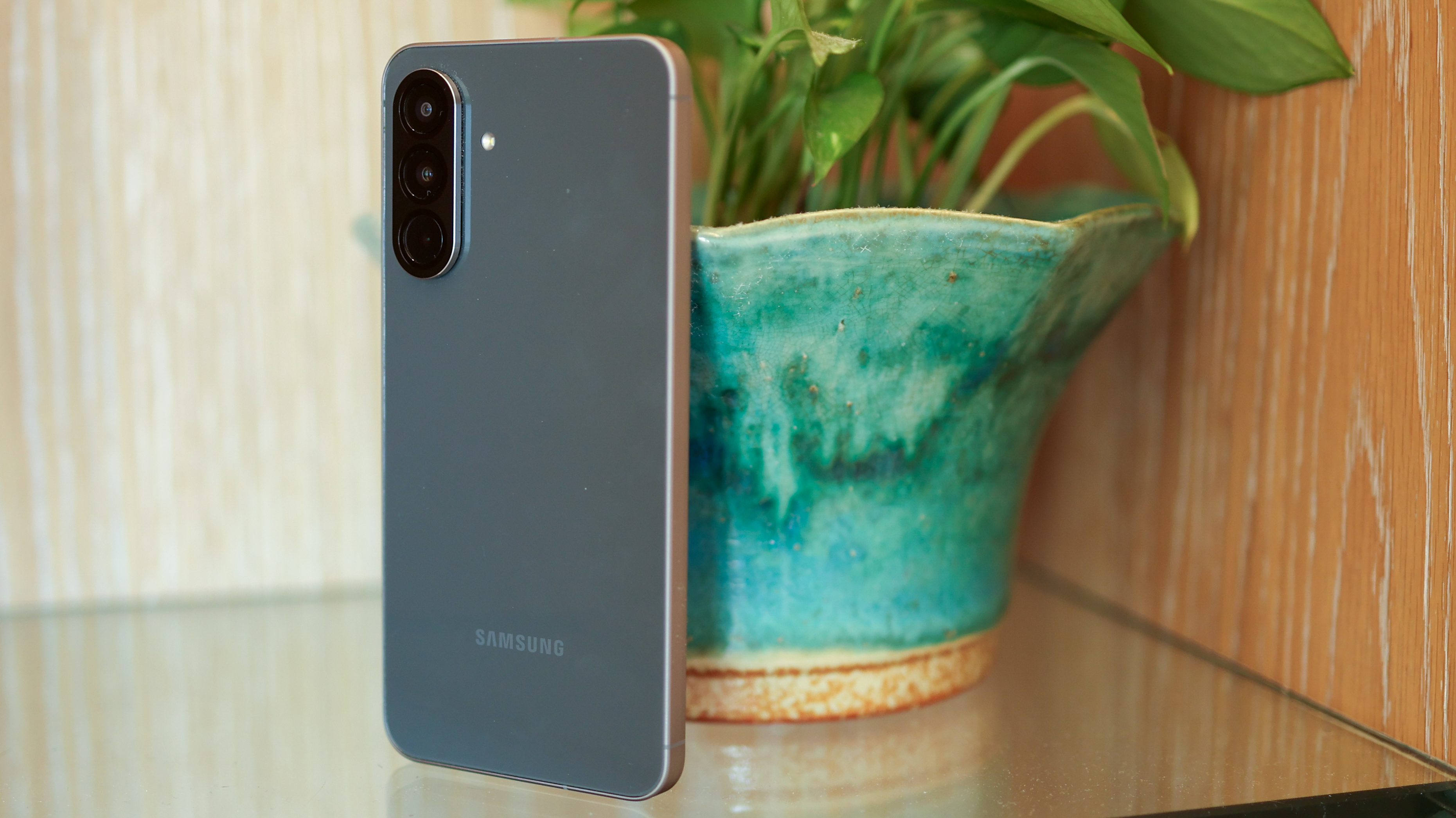 Samsung's affordable phones get Awesome Intelligence upgrade for free
Samsung's affordable phones get Awesome Intelligence upgrade for freeAnd its available to install right now
By Britta O'Boyle Published
-
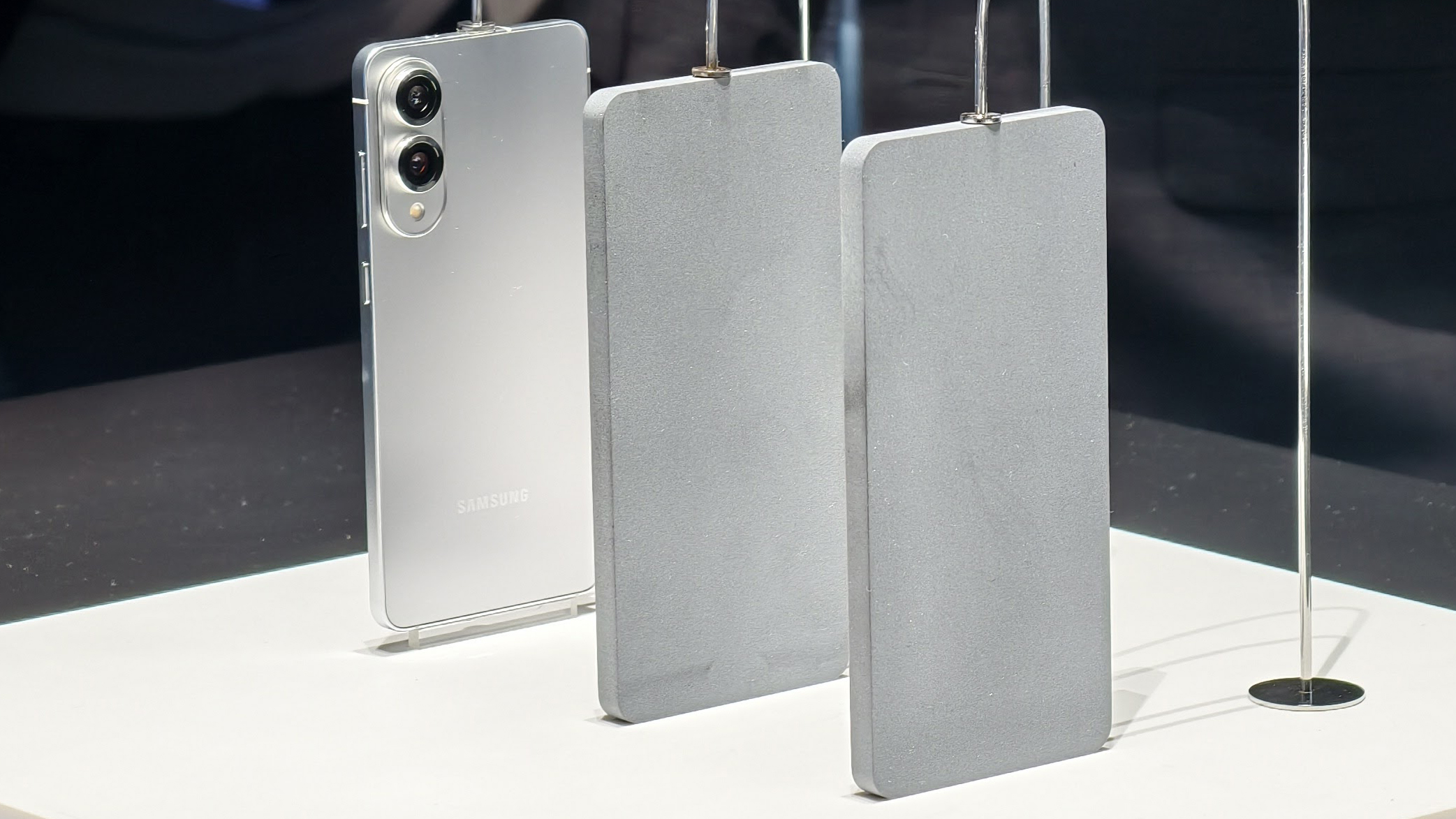 Samsung Galaxy S25 Edge could launch sooner than expected, because of space and time
Samsung Galaxy S25 Edge could launch sooner than expected, because of space and timeYou don't have to be a Doctor to realise why
By Britta O'Boyle Published
-
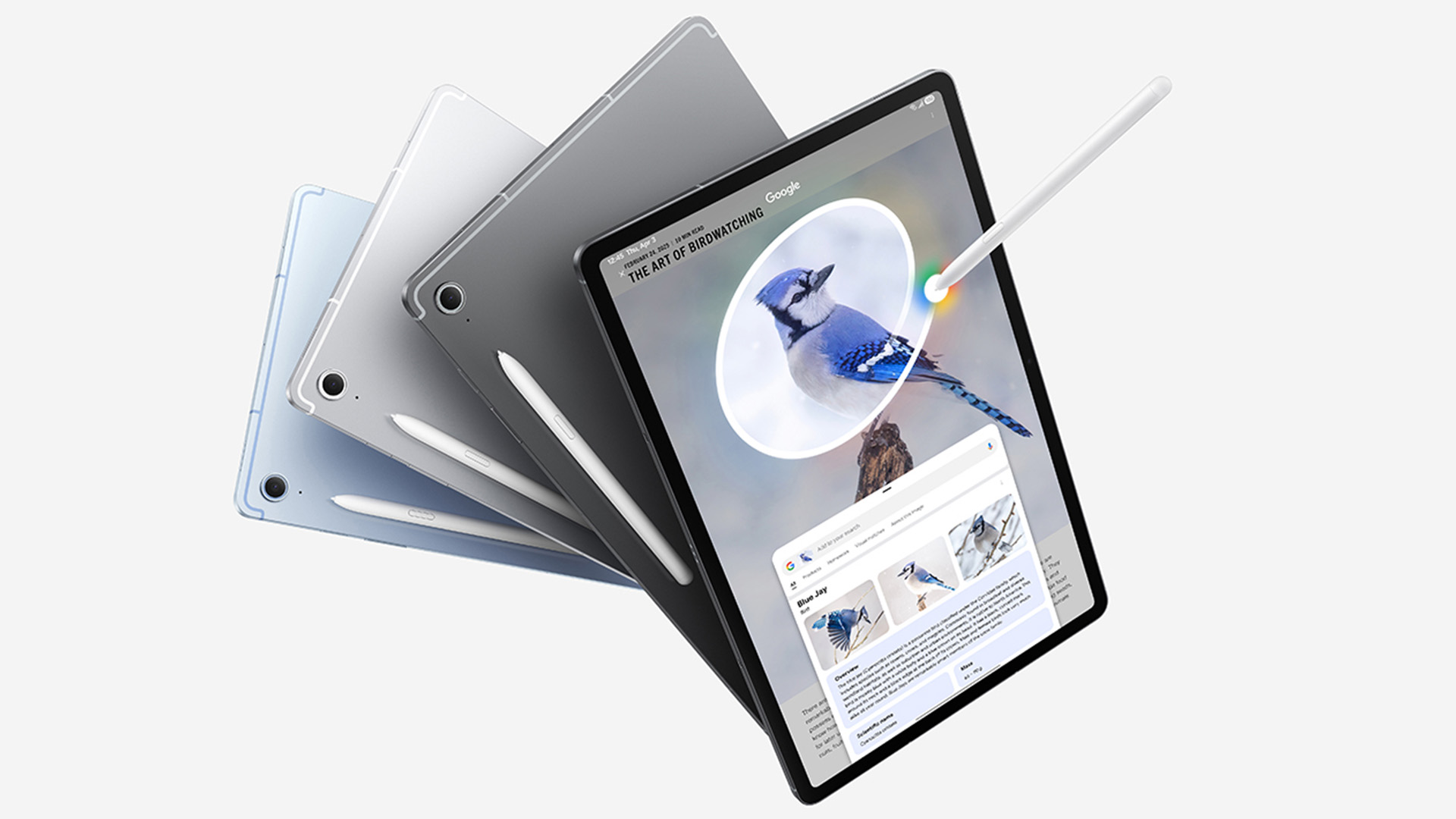 The Galaxy Tab S10 FE might be Samsung's best-value tablet yet
The Galaxy Tab S10 FE might be Samsung's best-value tablet yetA great new semi-premium entrypoint
By Max Freeman-Mills Published
-
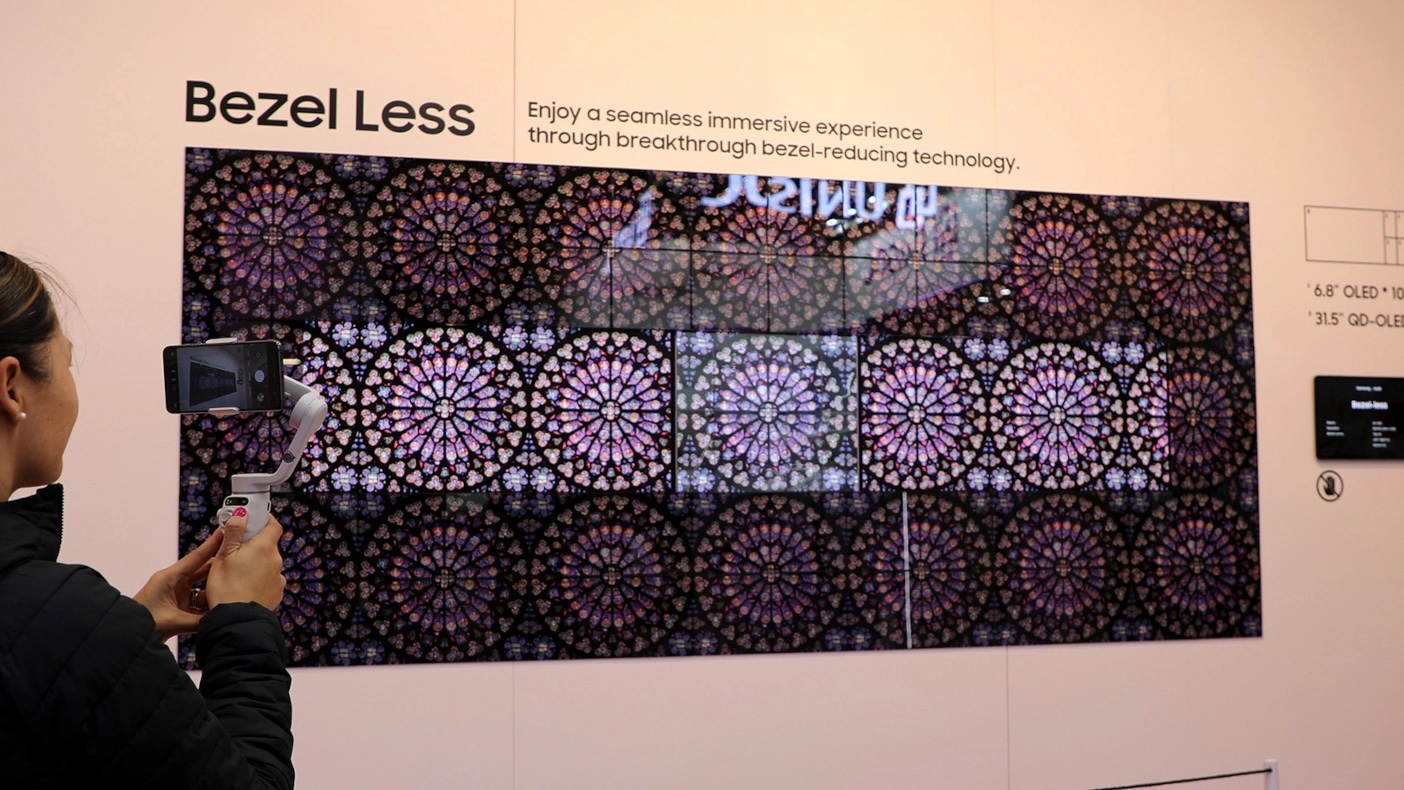 Samsung's bezel breakthrough could slash the cost of big-screen 8K OLED TVs
Samsung's bezel breakthrough could slash the cost of big-screen 8K OLED TVsMassive TV panels are really hard to make – so why not just tile multiple smaller ones instead?
By Carrie Marshall Published
-
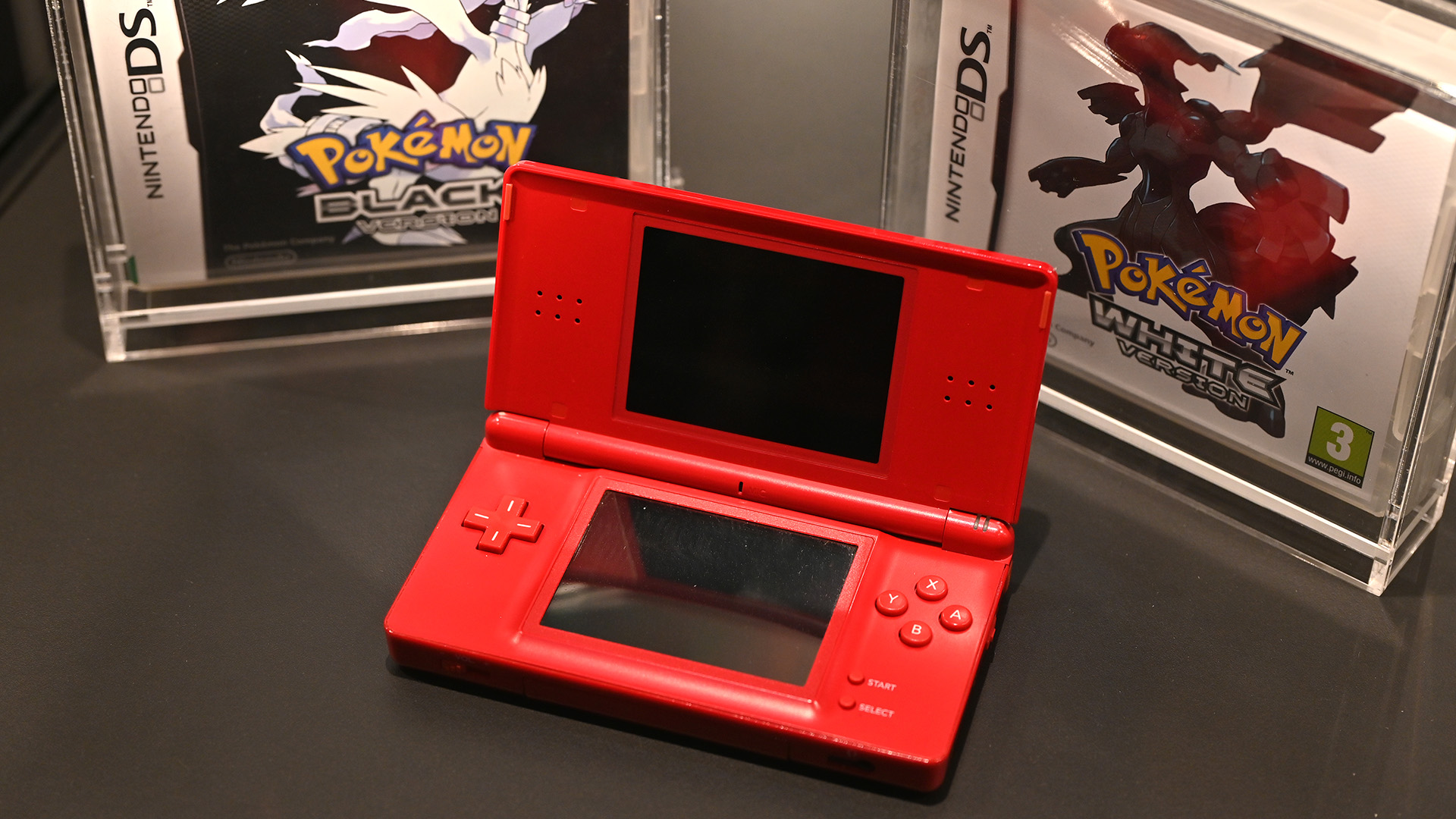 Samsung wants to turn the Z Flip phone into a Nintendo DS
Samsung wants to turn the Z Flip phone into a Nintendo DSA patent discovery shows an interesting accessory for the Z Flip foldable
By Rik Henderson Published
-
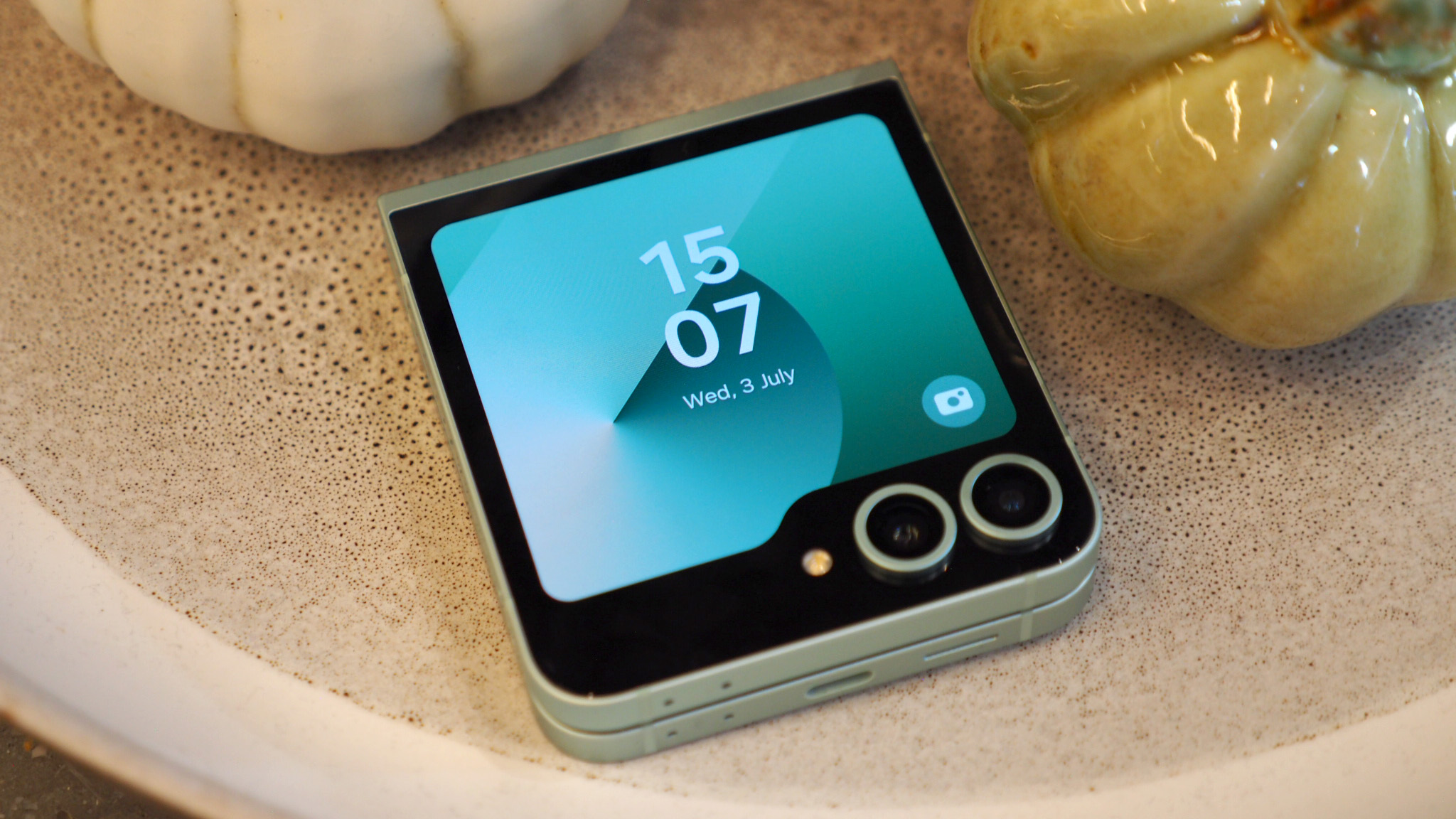 Leaked Samsung Galaxy Z Flip 7 FE images make us simply ask, "Why?"
Leaked Samsung Galaxy Z Flip 7 FE images make us simply ask, "Why?"Well, and when?
By Britta O'Boyle Published